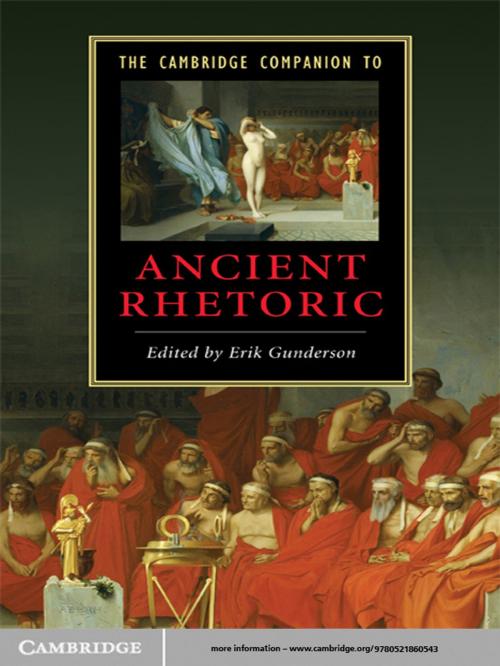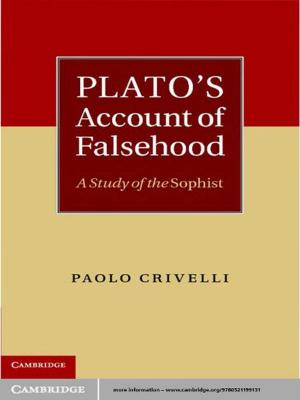The Cambridge Companion to Ancient Rhetoric
Fiction & Literature, Literary Theory & Criticism, Nonfiction, Religion & Spirituality, Philosophy, History| Author: | ISBN: | 9781139801331 | |
| Publisher: | Cambridge University Press | Publication: | July 9, 2009 |
| Imprint: | Cambridge University Press | Language: | English |
| Author: | |
| ISBN: | 9781139801331 |
| Publisher: | Cambridge University Press |
| Publication: | July 9, 2009 |
| Imprint: | Cambridge University Press |
| Language: | English |
Rhetoric thoroughly infused the world and literature of Graeco-Roman antiquity. This Companion provides a comprehensive overview of rhetorical theory and practice in that world, from Homer to early Christianity, accessible to students and non-specialists, whether within classics or from other periods and disciplines. Its basic premise is that rhetoric is less a discrete object to be grasped and mastered than a hotly contested set of practices that include disputes over the very definition of rhetoric itself. Standard treatments of ancient oratory tend to take it too much in its own terms and to isolate it unduly from other social and cultural concerns. This volume provides an overview of the shape and scope of the problems while also identifying core themes and propositions: for example, persuasion, virtue, and public life are virtual constants. But they mix and mingle differently, and the contents designated by each of these terms can also shift.
Rhetoric thoroughly infused the world and literature of Graeco-Roman antiquity. This Companion provides a comprehensive overview of rhetorical theory and practice in that world, from Homer to early Christianity, accessible to students and non-specialists, whether within classics or from other periods and disciplines. Its basic premise is that rhetoric is less a discrete object to be grasped and mastered than a hotly contested set of practices that include disputes over the very definition of rhetoric itself. Standard treatments of ancient oratory tend to take it too much in its own terms and to isolate it unduly from other social and cultural concerns. This volume provides an overview of the shape and scope of the problems while also identifying core themes and propositions: for example, persuasion, virtue, and public life are virtual constants. But they mix and mingle differently, and the contents designated by each of these terms can also shift.















